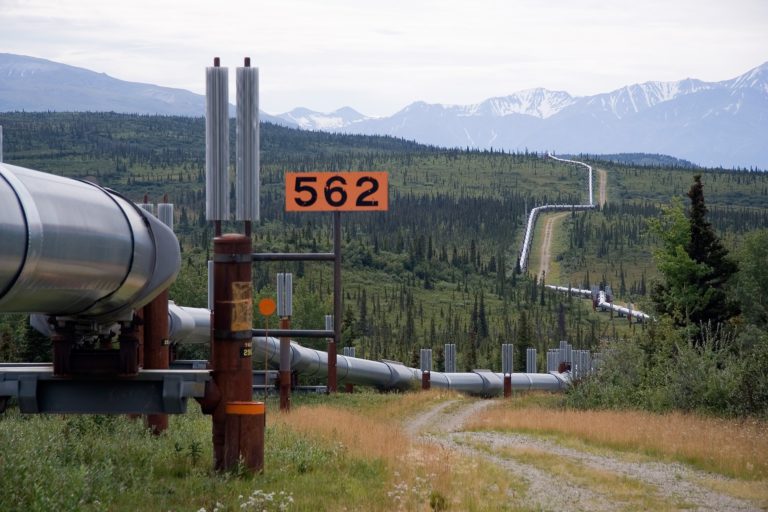
Written by Rachel Bauer, Legal Intern
In December 2017, the Federal Energy Regulatory Commission (FERC) announced its plan to revisit its permitting policy for natural gas interstate pipelines. The policy was originally developed in 1999 and, with the massive increase of natural gas production through fracking and resulting pipeline construction, it is due time for a revised FERC policy to accurately reflect the adverse impacts of fossil fuel infrastructure build-out.
The number of pipeline projects across the United States has increased dramatically over the past ten years, as hydraulic fracturing with horizontal drilling, the process known as fracking, has become a prevalent means of oil and gas extraction. As our many Waterkeepers who have opposed these projects can testify, pipeline construction can have enormous adverse impacts on water and air, and on fish-and-wildlife habitats, including those of endangered species. Erosion, sedimentation, turbidity and temperature changes in waterways can persist for years, even after construction is complete. Further, once a pipeline is in service, there are the very real threats of leaks, spills and explosions, and of significant impacts, especially to air quality, caused by the noisy, obnoxious compressor stations that keep fuels flowing through pipelines. Meanwhile there’s always the “elephant in the room” – global climate change. The more we continue to build a vast network of fossil-fuel pipelines, committing to extract and burn remaining reserves of oil and gas, the greater we endanger ecosystems around the world and the health and well-being of billions of people.
Under the current pipeline policy, virtually every application to construct a pipeline is approved by FERC. This is because the Commission can only deny an applicant a license if it determines that the project does not meet the “public convenience and necessity” standard. Sadly, when FERC attempts to make this determination, it grossly overweighs factors such as energy demand, potential cost savings to consumers, economic, and competitive interests, and pays little attention to other important interests such as public health and safety, water quality and other ecological impacts, climate change, and the private property rights of individuals and communities.
For example, under the federal Natural Gas Act, once FERC grants pipeline builders a certificate of public convenience and necessity, the company is authorized to take private property by eminent domain. Landowners who do not wish to have a pipeline cross their property have no meaningful recourse. If they do not voluntarily sell their property, the pipeline company simply goes to court and has the land condemned. And because FERC grants companies eminent domain authority before the administrative process is complete, landowners are powerless to go to court to challenge the decision. Such denial of due process to landowners should be at the top of FERC’s fix-it list when it revisits its policy.
Similarly, FERC is required to analyze environmental impacts when it considers pipeline applications. Many pipeline projects cross hundreds of rivers, streams, lakes and other waterways which causes lasting adverse water quality impacts, yet FERC routinely dismisses these problems as insignificant or mitigatable. And while FERC acknowledges that Greenhouse Gas (GHG) emissions contribute to global climate change, after President Trump’s Executive Order 13783, the Commission has generally declined to consider the GHG emissions from natural gas production as a factor when it considers pipeline applications, claiming that GHG emissions are “not relevant.” With the dramatic increase in pipeline projects, the Commission must seriously analyze climate change impacts from GHG emissions and their impact on public health and the environment when it makes public need determinations.
FERC is currently accepting online comments to inform how it should change its harmful pipeline policy. The comment period is open until July 25, 2018 and the Docket Number is PL18-1-000. Here is a template to get you started:
“I am writing in response to the Federal Energy Regulatory Commission’s request for information and stakeholder perspective to help the Commission explore how it should revise its outdated approach on the certification of new natural gas transportation facilities to determine whether a proposed natural gas project is or will be required by the present or future public convenience and necessity, as that standard is established in section 7 of the Natural Gas Act.
FERC must revise its current policy to give much more robust consideration when it makes public necessity and convenience determinations to factors such as environmental impacts, including emissions of climate pollution, and private property rights. For decades, FERC has grossly overweighed economic factors in its analysis, which has benefited a relatively small number of gas and pipeline companies at the expense of millions of Americans who depend upon clean air and water and a safe climate for themselves and future generations.
Additionally, FERC must fix its outrageous practice of issuing conditional certificates of public convenience and necessity — allowing pipeline companies to condemn private property through eminent domain — and then using “tolling orders” to avoid timely ruling on requests for rehearing. This practice unfairly locks landowners out of courthouses across the country and denies them due process to protect their private property from condemnation by for-profit companies. Our property rights are protected under our Constitution, and FERC must end this unamerican and unfair practice once and for all! Eminent domain should only be authorized, if at all, after a company has obtained every authorization required under the law.
[If possible, add a personal story regarding how you have been impacted by your private property being unnecessarily taken due to your inability to combat the current FERC permitting process.]”
**Photo by Luca Galuzzi